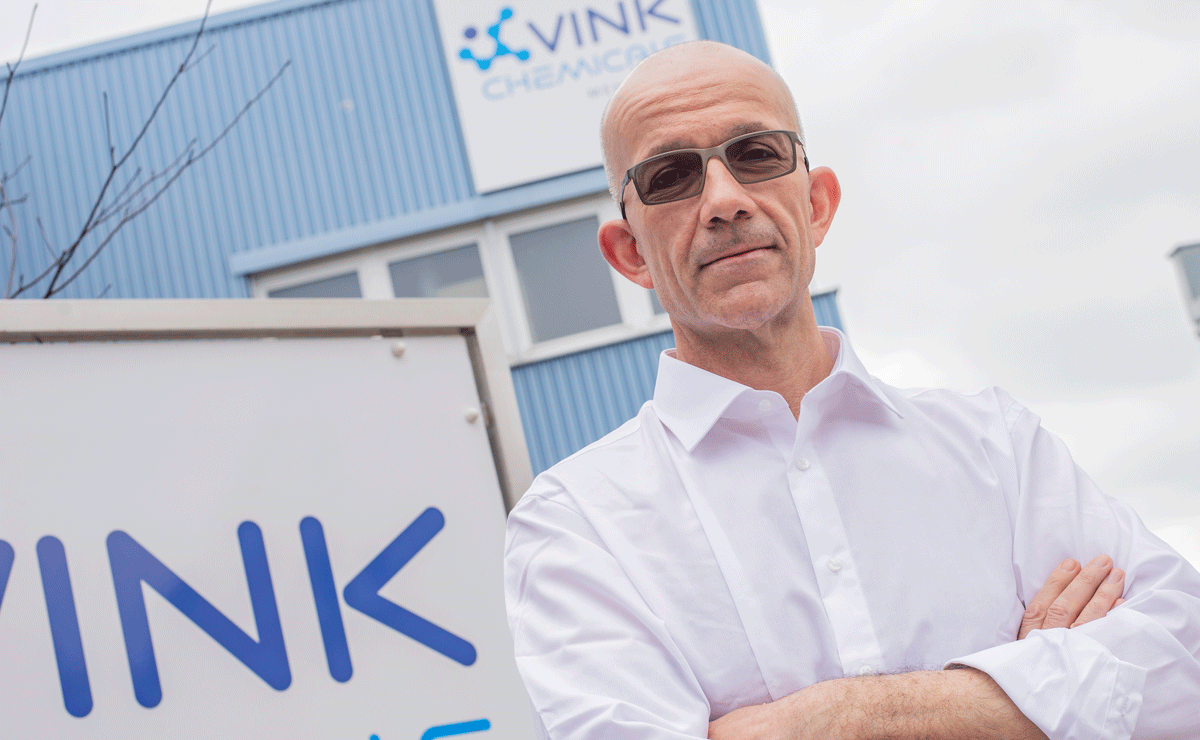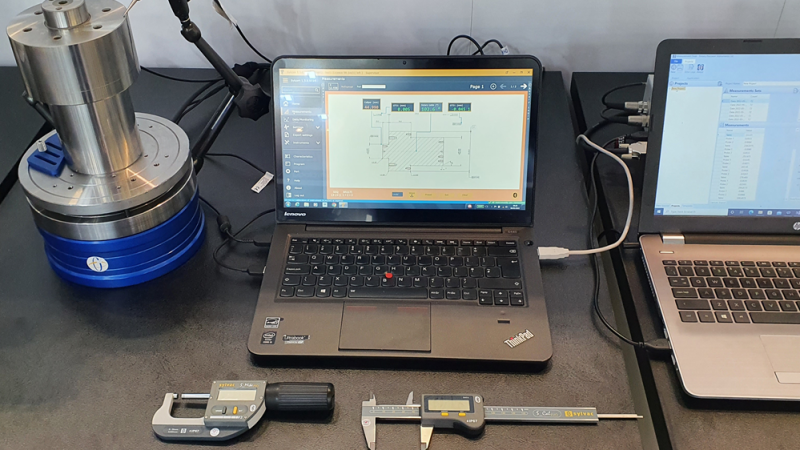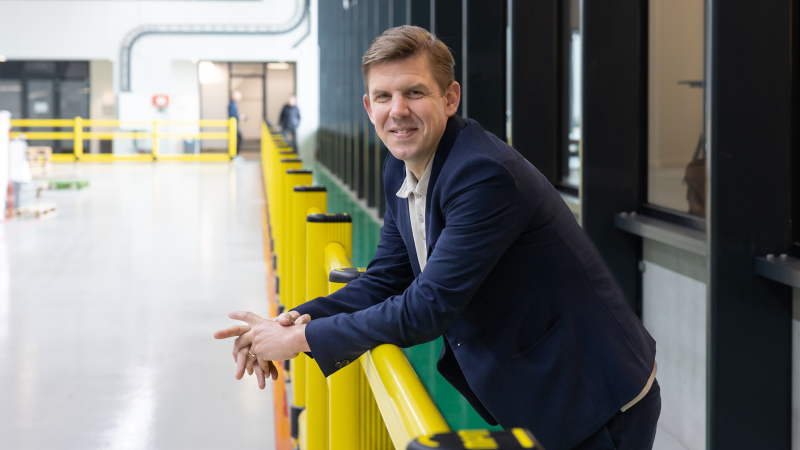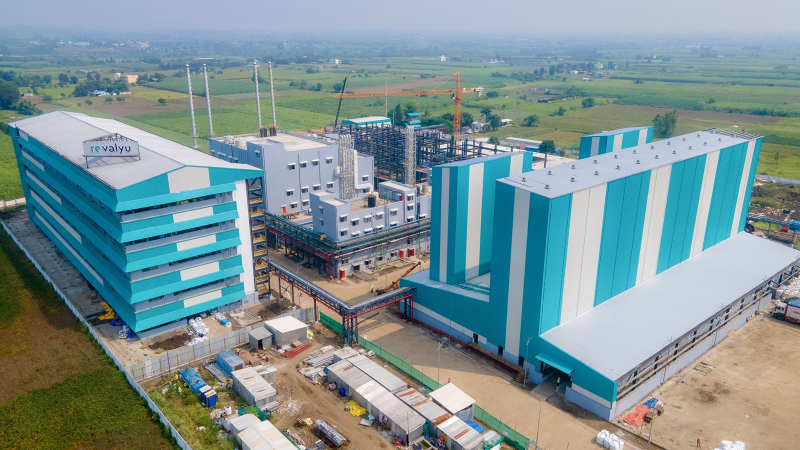Vink Chemicals, based in Kakenstorf in Lower Saxony, has a clear focus – to research, design, develop and produce formulations based on a wide range of biocidal actives that help to conserve resources and extend the duration of a wide range of products from everyday consumables and paints to industrial applications.
Biocides are indispensable in the modern world – they are used to control microorganisms and other undesirable organisms that could pose risks to the health of humans and animals, and cause enormous economic damage, product defects and hygiene problems. As such, biocides reduce the consumption of energy and natural resources as well as the volume of waste due to their economic and social benefits.
Biocides are applied in a wide range of sectors. “Our product lines include technical biocides, oil and gas, specialty chemicals and system cleaning,” says Vink Chemicals’ Managing Director Stephan Lauer, explaining that the company develops general products for broader markets as well as unique solutions for specific customer needs.
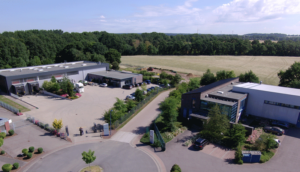 Right product, right people
Right product, right people
He further points out that Vink Chemicals as a chemicals producer is relatively young, although the business was established over 40 years ago as a chemicals trading company, sourcing and distributing active ingredients and formulations. A turning point came in 2011 when the son of the founder decided to re-direct the business to production – Vink Chemicals GmbH & Co. KG was established, and production started at its facility in Kakenstorf the following year.
The last five years have been a period of major expansion. In 2019, production capacities doubled as a result of Vink Chemicals’ acquisition of another production site in Memmingen in Bavaria. In the same year, the technical preservation business of Schuelke & Mayr was acquired, optimizing the long-term product portfolio. The most recent addition to the business occurred in 2021, when Anticor Chimie, the oilfield chemicals specialist, joined the group.
“We are young and dynamic, and the fact that we continue to be a family-owned business is an important factor. We have the right product and we also have the right people who are committed to making the business a success,” affirms Lauer.
“With 130 people across the globe, we are small compared to the large players, which enables us to be highly flexible in terms both of decision-making and of customer response. Although we operate globally, our capabilities are concentrated in Germany, and this ‘local’ focus is another advantage.”
New production facility
Vink Chemicals is now at a pivotal point in its history, entering the next phase of expansion – in November 2023 construction work started on its new site in Schwerin, a location consciously chosen with a long-term view to developing the business in Germany. The €30 million investment involved three years of planning and preparation and the new site is expected to open its doors in mid-2026, providing around 50 new full-time jobs in various disciplines.
This will be the start of a new era for the company as the Schwerin facility will allow Vink Chemicals to produce most of the raw materials required for the technical biocides in-house. Not only will this shorten transport routes and the supply chain, saving time and cost but its proximity to the port of Hamburg also means that sea routes, which are also important for the company’s international business, can be reached quickly. In addition to production, the Schwerin plant will also become Vink Chemicals’ central warehouse hub to serve the company’s two German plants and also its customers.
“We are building this new facility with backward integration in mind,” says Lauer. “We believe that in a few years, the European chemical industry will have to start producing their own raw materials that were outsourced decades ago, as Asian countries start look at satisfying their own market demand and limit exports. Availability of raw materials will then become a major issue. It will be availability, not price, that will then become the main driver. As an integrated producer, we will have a significant competitive advantage.”
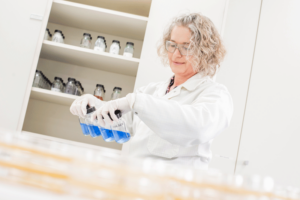 Saving resources
Saving resources
Further reflecting on sustainability, one of the key topics of today’s world, Stephan Lauer points out that although the concept of ‘green products’ is not so easy to achieve in the bio-chemical industry, developing solutions that extend product life represents a sustainable approach in its own right. “In terms of sustainability and environmental protection we are doing what every responsible company is doing these days, introducing measures to reduce the environmental impact of our operations, and striving to deliver performance numbers in the best way we can.”
“It is also part of our R&D efforts to develop products with ‘greener’ credentials. The very nature of biocides makes a great difference for reducing waste across many sectors, preventing bacterial growth, mould and decay. The impact is significant, be it in household products, industrial machinery or construction.”
An example of Vink Chemicals’ recent development is its innovative, non-triazine-based hydrogen sulphide scavenger that is intended to replace the established HHT solutions for midstream activities within the oil and gas sector. Hydrogen sulphide is a toxic, sour gas found in many of the world’s crude oils, generated by thermochemical, geological or biogenic processes. Not only does it represent a serious risk for health, safety and the environment, it can also corrode pipelines and equipment. Vink Chemicals’ oil/water soluble hydrogen sulphide scavenger has been developed to effectively counteract these problems.
Integrated chemicals producer
Sustainable approach is also reflected in the construction of the new plant that was originally designed to use fossil fuel (gas) for the production processes. “We are now re-considering the design, looking at renewable energy instead,” says Lauer.
“The idea is to try to secure energy for the production process from an in-house renewable source. This would not only make the facility independent of the external network, but also Germany’s first chemical plant that is climate-neutral. We are now carefully assessing the feasibility of this modification, with the final decision to be made in the next three to four months.”
As the construction progresses according to the plan, Vink Chemicals’ vision of becoming an integrated chemicals producer is clearly becoming a reality.
